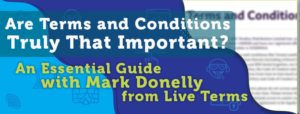Are You Too Smart to Be Scammed?
A lot of Australians think they can spot a scam and believe they would know what to do if they were targeted. However, the truth is scammers are getting more creative as days go by. They mimic contact details, branding and logos, and language to seem legitimate people or organisations and to trick even the smartest. Unfortunately, the community lost more than $25 million to email scams last year.

How Scammers Prey on People
Some cybercriminals obtain our information through the details we expose through social sites. Others take our email addresses through data breaches.
But some of them know that people tend to comply with requests from authorities that’s why one of their tactics is to pretend to be government agencies. They know that we’re used to verifying our identity, and they take advantage of it and use it as a way for us to provide personal and financial information, including account numbers, credit card details and passwords.
They also create legitimate-looking websites and send us links. They provide phone numbers and try to get us to call them. Once on the phone, they would attempt to gain remote access to our computers or sound like it’s something urgent to get us to make decisions without thinking.
What Scammers Want From Us
Scammers target us to steal money, and they do it in various ways. Sometimes, once they get access to your bank account, they take the money and transfer it to their account. There are times they would obtain your credit card details and make purchases online until you notice the charges.
The worse is when they pretend to be you and access your online accounts to contact your family, friends and even colleagues. This is the first part of the plan. The next step is to obtain your contacts’ personal and financial information and steal their money.
Protect Yourself and Your Information
While scammers become more creative, we can become more cautious. Here’s how you can protect yourself from scams:
1. Be alert.
If you’ve been contacted by someone claiming to be from the government or a business, consider that it might be a scam.
If you’ve been contacted by someone claiming to be from the government or a business, consider that it might be a scam.
Remember that they will try to get you to act as quickly as possible. Take your time and don’t do something in a rush. If you’re not sure what to do, don’t respond and talk to someone you trust before making a decision.
3. Don’t open anything that looks suspicious.
If you see something pop ups on your screen or a link in an email, think before you click. You can also do a phone or an email reverse lookup online to verify the identify of the sender.
4. Know who you’re dealing with.
You can perform a Google image search or look for reviews online to know if the business is genuine. If you receive an email from someone you know but the message is unusual or it’s out of character, contact that person using contact details that are unrelated to the email to check if the email was really from them.
5. Be cautious of unusual payment requests.
Government agencies or trusted businesses will never request payment through unusual methods. These include cryptocurrencies like Bitcoin, preloaded debit cards and gift cards.
6. Be way of request to change payment details.
If you’re making or processing payments and you suddenly received a request to change payment details, contact the business or individual to verify the request. Read more about the fraud that targets payroll officers.
It’s Scams Awareness Week from 12 to 16 August 2019. Consider if you are ‘too smart to be scammed.’




























